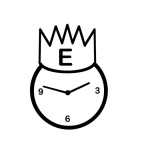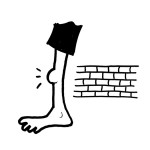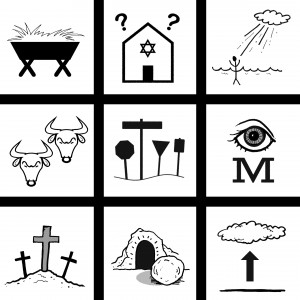 After 70 years of Babylonian captivity, God appeared to the Babylonian king in the form of a human hand. He wrote out a message that said, “You have been weighed in the courts of heaven and found wanting. You will lose your kingdom tonight.” Daniel is called into the courtroom to interpret the message. Daniel boldly confirms the interpretation from God. God had waited for the Babylonians to seek Him. The time for waiting was
After 70 years of Babylonian captivity, God appeared to the Babylonian king in the form of a human hand. He wrote out a message that said, “You have been weighed in the courts of heaven and found wanting. You will lose your kingdom tonight.” Daniel is called into the courtroom to interpret the message. Daniel boldly confirms the interpretation from God. God had waited for the Babylonians to seek Him. The time for waiting was

over; the time of consequences had come. That night, the Persians conquered the Babylonians as Daniel had predicted.
(History records that the Medes and Persians had diverted the river flowing through Babylon over the previous months. This diversion caused the water level to decrease, which allowed the Medes and Persians to sneak troops through the city’s water supply lines.) The Persians conquered the seemingly unconquerable Babylon – just as Daniel had predicted. The nation of Israel (both kingdoms) was now under the reign of Persia. Since Persia’s goal was to conquer Babylon, they had no problems – per se – with Jacob’s (Israel’s) descendants.
The Persians allowed the Israelites to return to God and to their land. The returns occurred in phases. Ezra the priest took a group first. Meanwhile, back in Persia, many of the Israelites stayed behind, choosing the comfort of Persia over the danger of the unknown. The king of Persia had a hot temper. In a moment of anger, he tossed out his wife and held a beauty contest in his kingdom for a replacement queen. A woman from Israel named Esther won the

contest and the heart of the king. The king was unaware of her Jewish heritage. Esther’s cousin, Mordecai, was a man of faith who loved God. One day a Persian official named Haaman came to town and demanded that everyone bow down to him; but Mordecai refused. Haaman was furious and plotted not only Mordecai’s demise, but that of all the Israelites. Haaman built a gallows and had the king sign the order to kill all Mordecai’s people. Mordecai sent for his cousin, the queen. She was scared, but realized she had become queen for “such a time as this.” She courageously risked her life by admitting to the King that she too was from Israel. She informed the king that Haaman had plotted to kill her family, and so the king killed Haaman instead. The people of God were rescued from genocide and thanked God for rescuing them. For a time, the people of God returned.

A second return from Persia to Jerusalem occurred a few years later. A leader named Nehemiah, a cup bearer to a later Persian king, felt called to rebuild the walls of the city back home. Nehemiah felt prompted to leave his post and help the people return to God. He put together a strategic plan, got funding, and rebuilt the walls in record time.
More people returned to the land of Israel to help rebuild the city and the temple. Haggai, the prophet, told the people that the temple they were building was a tangible reminder that God was sending a Messiah to forgive them for their history of running and rebellion. This Messiah would show them how to receive God’s righteousness and have a friendship with God. The people expressed their love and thankfulness to God for his peace, forgiveness, and patience with them.
The last voice of the Old Testament was Malachi, who told us that God’s people were running again, but God promised to return their hearts to Him through the Messiah, the Final Forgiver and Rescuer.
The most significant predictions made by the prophets described the coming Messiah. Details were given about his life, genealogy, teaching, death, and kingdom. Micah predicted that the Messiah would one day be born in Bethlehem. Another prophet predicted his betrayal by a friend for 30 pieces of silver. Several prophets, including David, predicted that the Messiah would have His clothes divided before his death. Years before crucifixion was

even invented, the prophets predicted that the Messiah would die on a tree. They predicted that He would be led like a lamb to the slaughter. Isaiah described the Messiah as a suffering servant who would die to pay for the rebellion of His people. He would make a way to restore and cleanse anyone who asked for forgiveness and leadership. The most shocking prediction was the prophecy that God would allow the Messiah to die, but raise Him back to life. These predictions were all made more than 400 years before Jesus stepped onto the scene of history.
Here is a live teaching of Fast Track (2 Kings-Malachi):
For a free session of Godonomics, visit: http://www.godonomics.com/watch-session-5

